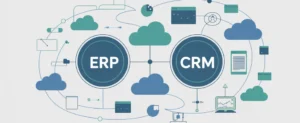
Data is the backbone of modern business operations, driving decision-making, innovation, and customer experiences. However, as organizations increasingly rely on data to power their strategies, the challenges of managing it effectively grow exponentially. Without a structured approach to handling data, businesses risk inefficiencies, security breaches, and regulatory penalties. This is where data governance becomes indispensable. But what exactly is data governance, and why is it so crucial for enterprises today?
What Is Data Governance?
Data governance is a structured framework of policies, processes, standards, and responsibilities designed to ensure that an organization’s data is accurate, secure, consistent, and compliant with regulatory requirements. It provides a clear roadmap for managing data throughout its lifecycle—from creation and storage to usage and disposal.
At its core, data governance is about establishing accountability and control over data assets. It ensures that data is treated as a valuable resource and is managed in a way that aligns with the organization’s goals and regulatory obligations.
Key Components of Data Governance:
- Data Quality Management: Ensures data is accurate, consistent, and reliable across all systems.
- Data Security & Privacy: Protects sensitive data from unauthorized access, breaches, and misuse.
- Regulatory Compliance: Ensures adherence to data protection laws such as GDPR, HIPAA, CCPA, and others.
- Data Ownership & Accountability: Assigns clear roles and responsibilities for data management and access.
- Standardization & Metadata Management: Defines consistent data structures, formats, and metadata for seamless integration and interoperability.
Without data governance, organizations risk data silos, inconsistencies, security vulnerabilities, and non-compliance with regulations—issues that can have far-reaching consequences.
Why is Data Governance Important?
In an era where data drives business success, the importance of data governance cannot be overstated. It serves as the foundation for managing data as a strategic asset, ensuring it is accurate, secure, and compliant. Here’s why data governance is a cornerstone of modern business operations:
- Ensures Data Accuracy and Consistency
Inaccurate or inconsistent data can lead to poor decision-making, operational inefficiencies, and customer dissatisfaction. Data governance establishes processes to maintain data quality, ensuring that all stakeholders have access to reliable and up-to-date information.
- Enhances Data Security
With cyber threats on the rise, protecting sensitive data is more important than ever. Data governance frameworks include robust security measures such as encryption, access controls, and authentication protocols to safeguard data from breaches and unauthorized access.
- Facilitates Regulatory Compliance
Organizations must comply with a growing number of data protection regulations, such as GDPR, HIPAA, and CCPA. Non-compliance can result in hefty fines, legal action, and reputational damage. Data governance ensures that data is managed in accordance with these regulations, reducing the risk of non-compliance.
- Improves Operational Efficiency
Data governance eliminates data silos and redundancies, enabling seamless data flow across systems and departments. This improves collaboration, reduces inefficiencies, and enhances overall productivity.
- Supports Data-Driven Decision-Making
High-quality, well-governed data is the foundation of effective decision-making. Data governance ensures that decision-makers have access to accurate, timely, and relevant data, enabling them to make informed choices that drive business success.
- Builds Customer Trust
Customers expect their data to be handled responsibly and securely. By implementing strong data governance practices, organizations can demonstrate their commitment to data privacy and security, building trust and loyalty among customers.
Best Practices for Implementing Data Governance
Implementing data governance requires a strategic and structured approach. Here are some best practices to consider:
- Define Clear Objectives: Establish the goals and scope of your data governance initiative, aligning it with your organization’s overall strategy.
- Assign Data Ownership: Designate clear roles and responsibilities for data management and access.
- Develop Policies & Standards: Create comprehensive policies for data quality, security, and compliance.
- Leverage Technology: Use data governance tools and platforms to automate processes and ensure consistency.
- Monitor & Audit: Continuously monitor data flows and conduct regular audits to ensure compliance and identify areas for improvement.
- Educate & Train: Provide training to employees on data governance policies and best practices.
How Tellestia Can Help Businesses
At Tellestia, we specialize in helping businesses implement robust data governance frameworks that ensure data integrity, security, and compliance. Our services include:
- Custom Data Governance Strategies: Tailored solutions that align with your business objectives and regulatory requirements.
- Seamless API Integration: Secure, standardized, and scalable API integration to facilitate seamless data exchange.
- Regulatory Compliance Solutions: Expert guidance to ensure compliance with GDPR, HIPAA, CCPA, and other regulations.
- Cloud Data Governance: Policies and tools to enforce secure cloud integration and data management.
With Tellestia, you can eliminate data silos, secure your APIs, and achieve compliance, making your digital transformation journey seamless and efficient.
Conclusion
Data governance is a critical component of modern business operations. It ensures that data is accurate, secure, and compliant, enabling organizations to make informed decisions, improve efficiency, and build customer trust. In an era where data is one of the most valuable assets, implementing a robust data governance framework is not just important - it’s essential.
Ready to Take Control of Your Data?
Partner with Tellestia to implement a data governance strategy that drives business success. Contact us today to learn more!
Naveen
Director - Client Engagement & Partnership
Naveen is a Director at Tellestia, focused on empowering businesses through innovative tech solutions. He writes about leadership, strategy, and digital transformation.
Data Governance
Data Management
Data Security
Digital Transformation

























